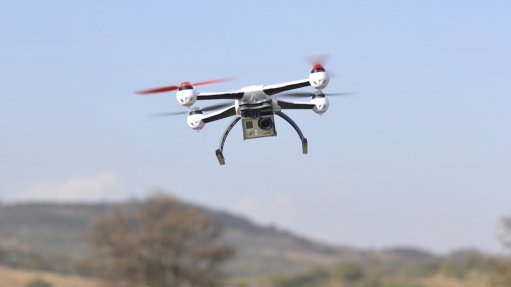
UNCERTAIN TERRITORY
Getting to grips with drone piloting is more challenging than many newcomers may think
Photo by: Dylan Slater
With interest in remotely piloted aircraft systems (RPASes), or drones, increasing, seemingly unhindered by their high costs, Cape Town-based RPAS sport organisation Drone Racing Africa (DRA) has introduced a basic drone flying course.
The course aims to instruct new and amateur RPAS pilots in the fundamentals of piloting their new aircraft and increase compliance with basic RPAS legislation.
Following an influx of requests for a fundamental drone flying course from hobbyists around South Africa, DRA CEO Simon Robinson says the organisation designed a certificate course to equip complete beginners with “sound knowledge and understanding” of local hobbyist drone laws and regulations and to instruct them in the physical competencies involved in flying a drone.
He points out that consumers are willing to “fork out substantial amounts of money for this modern-day hobby”. The cost of reputable name brand hobbyist drones ranges from about R1 000 for miniature versions, such as the Blade Inductrix, to about R25 000 for the popular DJI Mavic Pro and up to R35 000 for the DJI Phantom. Larger, higher-end multirotor drones can retail for more than R100 000.
For many, actually “getting to grips” with flying a drone is not as easy as many newcomers expect and the result is, invariably, a damaged drone, resulting in costly repairs and spare parts, Robinson explains.
The one-and-a-half-day DRA course consists of theory, simulator and practical modules. Classroom components include flight navigation and planning, RPAS-applicable laws, as well as procedures and principles of flight.
Simulator training concentrates on line-of-sight flying, throttle management, hover control and turning over axes.
To obtain the certificate, students will need to pass a flight test, examined by an instructor certified by the South Africa Model Aircraft Association.
Meanwhile, Robinson notes that the recreational RPAS sport of racing drones has, on a global scale, been referred to as “the sport of the future”. For the DRA team, the main objective is to be the driving force behind the growth of the sport in South Africa and create opportunities for drone flying on a social and professional level to all communities in the country.
RPAS technology is constantly developing, thereby leading to a situation in which current common practice may soon become outdated – hence, DRA’s endeavouring to ensure that its courses keep abreast of the development curve.
Meanwhile, DRA is also working on launching a drone-building course that will not only teach students to fly them correctly and safely but also equip them with the technical knowledge required to assemble a drone. DRA’s commercial drone remote pilot licence and instructor partner, UAV Industries, operates a Civil Aviation Authority-certified flight school in Paarden Eiland, Cape Town, and presents suitable follow-on training courses, such as a pilot licence for hobbyist flyers who want to turn drone flying into a legal and licensed career.
Meanwhile, Robinson points out that drone racing is rapidly becoming popular worldwide.
For drone racing pilots keen to compete against other pilots in their local drone racing community, the DRA racing league is open to anyone who has completed a course with DRA or who is a competent drone flyer.
Leagues are running in Sandton, Johannesburg, and in Constantia, Cape Town, with racing events in each city taking place twice a month.